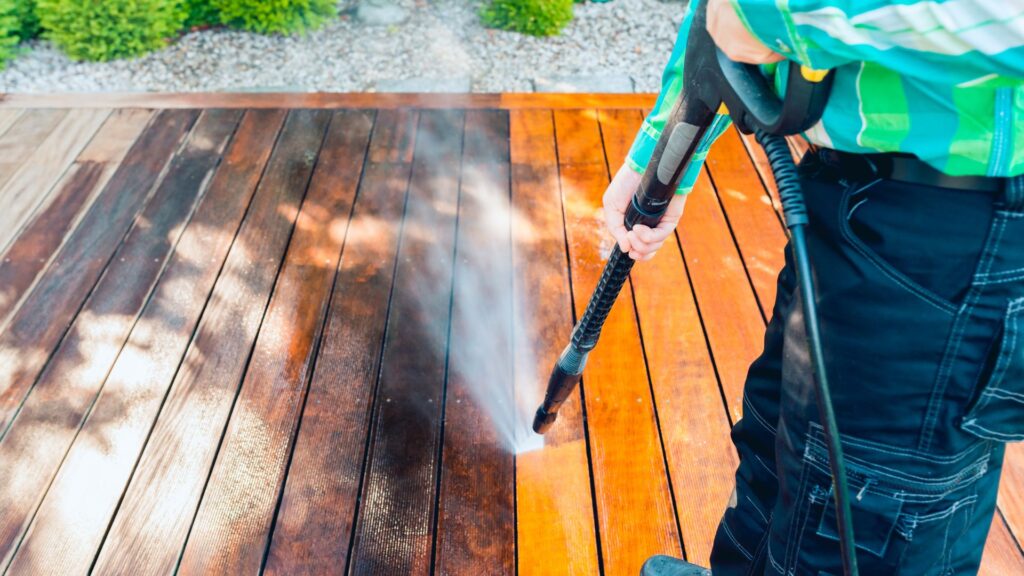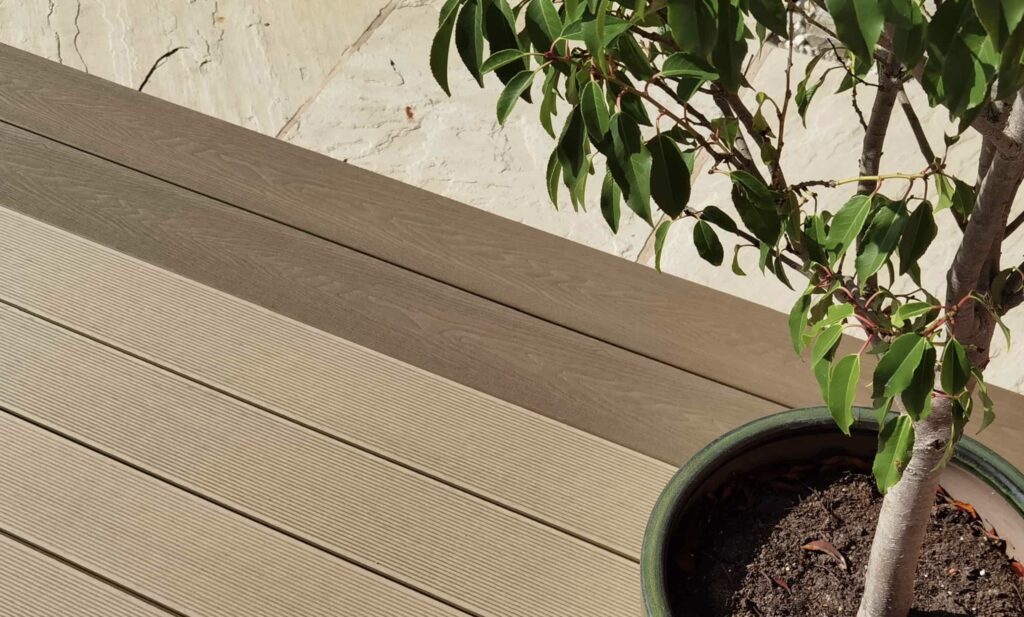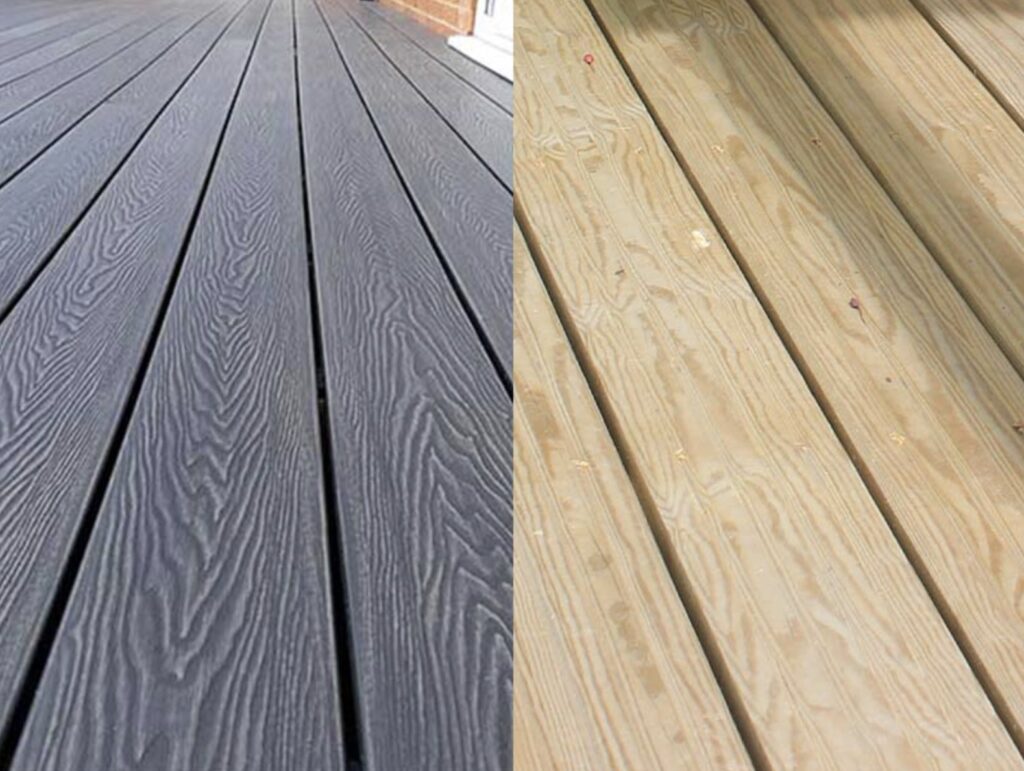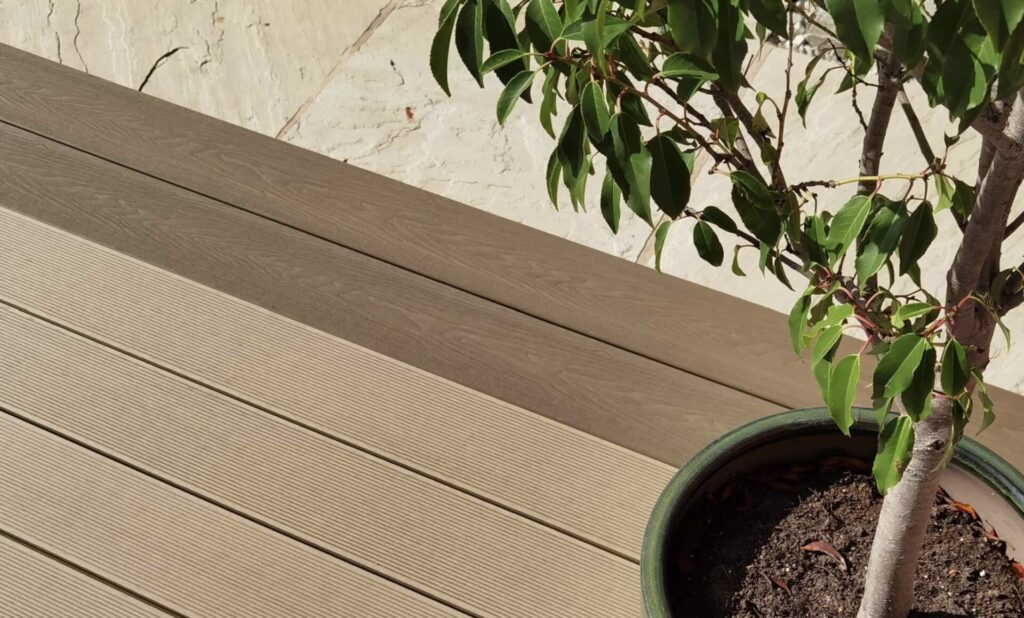Welcome to your ultimate guide on selecting the best deck cleaners in New Zealand for 2024! Whether you’re looking to rejuvenate a weary deck or maintain the splendor of your outdoor living area, choosing the right deck cleaner is crucial for preserving its beauty and longevity. In this article, we’ll explore a variety of deck cleaning solutions, from high-powered chemical options to eco-friendly choices and even homemade concoctions suited for different materials like pine, hardwood, and composite decking. We’ll also delve into the importance of regular deck maintenance, ensuring that by the end of this guide, you’ll be equipped with all the information needed to make an informed decision that keeps your deck looking its best year after year.
Looking for the best deck cleaner in New Zealand? Whether you’re dealing with pine, hardwood, or composite decking, choosing the right cleaner is essential for maintaining your deck’s beauty and longevity. From powerful chemical cleaners to eco-friendly options and DIY solutions, we review the top products to help you make an informed choice. Discover effective, safe, and cost-efficient deck cleaning methods tailored to New Zealand’s unique conditions.
Table of Contents
Why Deck Maintenance Is Crucial
Maintaining your deck is not just about keeping it looking good—it’s a critical step in prolonging its lifespan and ensuring safety. In New Zealand, where decks are a popular addition to homes due to the beautiful outdoor environment, the choice of deck materials and the challenges they face from local weather conditions mean that regular upkeep is not just recommended; it’s essential. Let’s delve into why deck maintenance is so important, exploring the common materials used, the challenges these materials face, and the undeniable benefits of regular cleaning.
Overview of Deck Materials Commonly Used in NZ
In New Zealand, decks are constructed from a variety of materials, each offering different aesthetics, durability, and maintenance needs. The most commonly used materials are:
- Pine: Treated pine is a popular choice because of its affordability and availability. However, it requires regular maintenance such as staining and sealing to protect against the elements.
- Hardwood: Durable and visually appealing, hardwoods like kwila are favored for their longevity and resilience to wear. However, they can be more expensive and still need regular oiling to maintain their color and protection.
- Composite Decking: Made from a mix of wood fibers and plastic, composite decking is praised for its low maintenance requirements and resistance to rot, mold, and fading. It’s an excellent choice for those looking for a durable and low-maintenance option.
Common Challenges for NZ Decks
Decks in New Zealand must withstand a unique range of environmental challenges that can affect their longevity and safety:
- Weather Conditions: New Zealand’s weather can be harsh with high UV levels, heavy rainfall, and in coastal areas, salt spray. These conditions can rapidly degrade materials not suited to such exposure.
- Mold, Mildew, and Algae Growth: The wet climate in many parts of New Zealand encourages the growth of mold, mildew, and algae, which can not only stain the deck but also make it slippery and dangerous.
- Insect Infestation: Certain materials, especially wood, can be vulnerable to insects such as termites and wood borers that compromise the structural integrity of the deck.
Benefits of Regular Cleaning
Regular cleaning and maintenance of your deck have several benefits that go beyond aesthetics:
- Extending Deck Life: Regular cleaning helps to remove harmful substances like dirt, mold, and algae that can cause the materials to deteriorate over time. By keeping these at bay, you can significantly extend the life of your deck.
- Maintaining Appearance: A well-maintained deck continues to look new and inviting, enhancing the overall look of your home. Regular cleaning and necessary treatments like staining and sealing help preserve the material’s color and finish.
- Safety Considerations: A clean deck is a safe deck. Removing mold, mildew, and algae minimizes the risk of slips and falls. Additionally, regular inspections during cleaning can help catch any potential hazards like loose boards or protruding nails.
In conclusion, regular deck maintenance in New Zealand is not just about upkeep but about maximizing your investment and ensuring a safe, enjoyable outdoor space for years to come. Whether you opt for pine, hardwood, or composite decking, understanding the specific needs and challenges of your chosen material will help you keep your deck in peak condition.
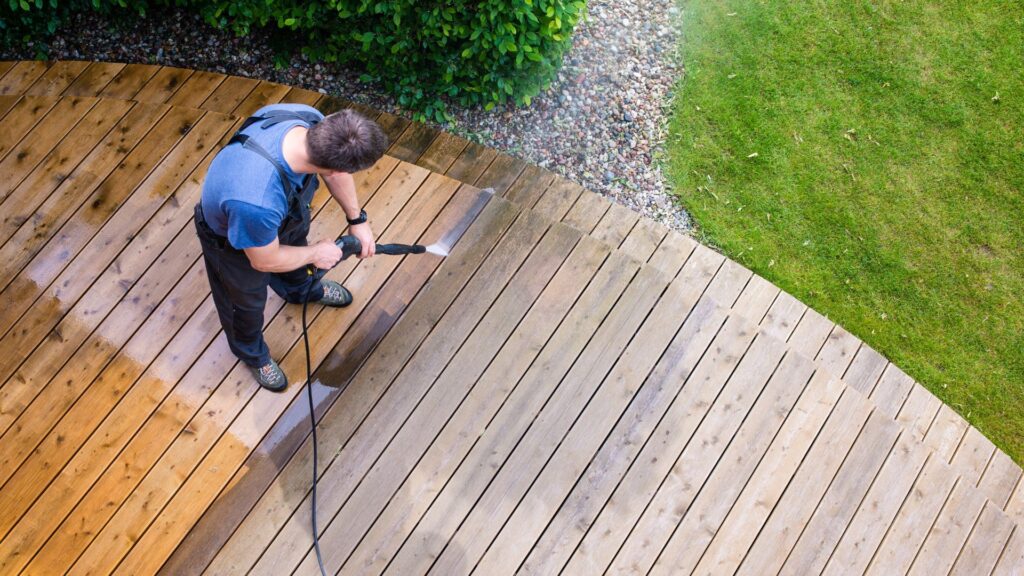
Types Of Deck Cleaners
When it comes to maintaining your deck, selecting the right cleaner can significantly affect its appearance, longevity, and safety. Deck cleaners fall into several categories, each suited to different types of decking materials and levels of dirt or grime. Here, we’ll explore the various options available, including chemical cleaners, eco-friendly solutions, homemade mixes, and specialized cleaners, helping you make an informed decision for your deck maintenance.
Chemical Cleaners
Chemical deck cleaners are potent solutions designed to tackle tough stains, mold, and mildew. Pros of using chemical cleaners include their efficiency in breaking down stubborn dirt and their ability to provide a deep clean without the need for extensive scrubbing. Common ingredients in these cleaners include bleach (sodium hypochlorite) and sodium percarbonate, which are known for their disinfecting properties.
However, there are cons to consider. These chemicals can be harsh on the environment and may pose health risks if not used properly. They can also be detrimental to the landscaping around your deck and may cause discoloration or damage to certain materials if applied incorrectly.
Eco-Friendly Cleaners
As environmental awareness increases, eco-friendly deck cleaners have become more popular. These solutions offer benefits such as being biodegradable and less harmful to the plants and animals around your home. Key ingredients often include citric acid, oxygen bleach (a safer alternative to chlorine bleach), and natural oils like lemon and tea tree, which provide effective cleaning properties without the harsh environmental impact.
Eco-friendly cleaners are gentle on your deck and surrounding areas but may require more elbow grease or repeated applications to achieve the same level of cleanliness as chemical options.
Homemade Solutions
For those who prefer a DIY approach, homemade deck cleaning solutions can be an effective and economical choice. Common recipes include a mixture of vinegar and water, which is great for light cleaning and brightening. Baking soda can also be added for its mild abrasive properties, which help remove tougher grime without damaging the deck wood.
While these solutions are cost-effective and environmentally safe, their effectiveness can vary. They are generally better suited for maintenance cleaning rather than tackling deep stains or mold.
Specialized Cleaners for Different Materials
Choosing the right cleaner is also crucial depending on your deck’s material. Wood decks benefit from cleaners that penetrate the porous surface without causing drying or cracking, whereas composite decks require a different approach, often needing less abrasive solutions to maintain their integrity.
For wood, look for cleaners that restore the wood’s natural pH balance and offer protection against water damage. For composite materials, choose cleaners specifically designed for synthetic decking to avoid damaging the surface.
Understanding the types of deck cleaners available and selecting the right one for your needs will ensure your deck remains a beautiful and safe space for your outdoor activities. Whether you choose a robust chemical cleaner, an eco-friendly alternative, or a homemade solution, consider the material of your deck, the local environment, and your personal safety to achieve the best results.
This overview provides a comprehensive guide to choosing the right deck cleaner, tailored to both your deck’s needs and your environmental considerations. Whether tackling a small stain or undertaking a full deck restoration, there’s an option suited to every homeowner’s needs.
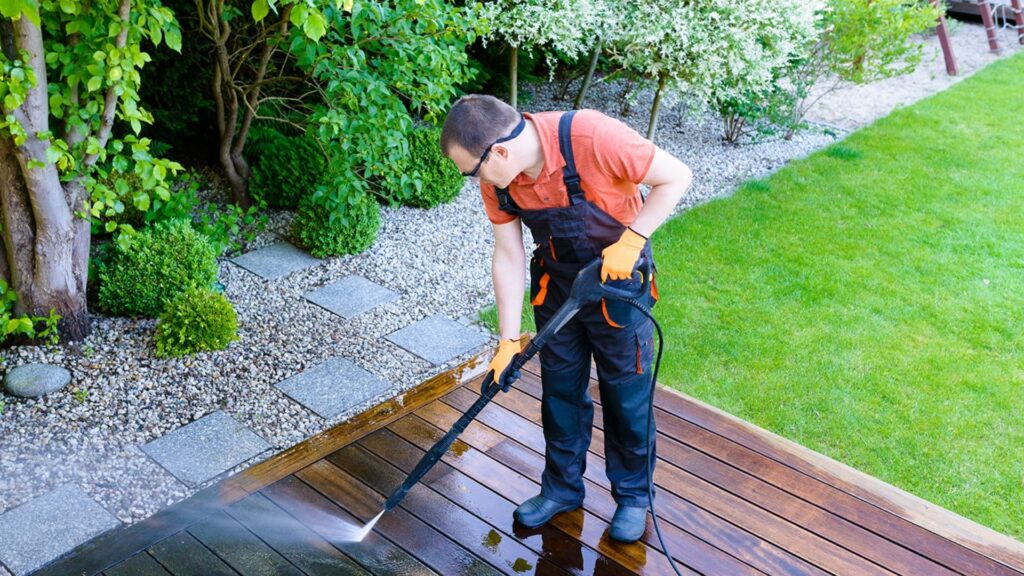
Review Of Top Deck Cleaners Available In NZ
When it comes to maintaining your deck, choosing the right cleaner is crucial to ensure it withstands the elements and continues to look its best. In New Zealand, where the weather can go from sun-soaked summers to wet, windy winters, selecting a deck cleaner that can handle this range is essential. This review will guide you through some of the top deck cleaners available in the market, based on effectiveness, user reviews, cost considerations, and more.
Overview of Selection Criteria
Our selection of the top deck cleaners available in New Zealand is based on a rigorous evaluation process. We considered several factors to ensure that our recommendations meet your decking needs. Effectiveness is our primary criterion; a deck cleaner must deliver on its promise to clean and protect. We also delved into user reviews to gauge customer satisfaction and real-world performance. Cost was another crucial factor, as we aimed to include products that offer good value for money. Additionally, we considered the environmental impact of the cleaners, preferring products that are as eco-friendly as possible.
Product 1 Review: DeckBright Cleaner
Pros:
- Highly Effective: DeckBright Cleaner excels in removing stubborn stains and mildew, making it ideal for decks exposed to heavy rainfall.
- Eco-Friendly: Formulated with biodegradable ingredients, it’s a great choice for environmentally conscious homeowners.
- Ease of Use: This cleaner comes in a ready-to-use spray bottle, making application straightforward and mess-free.
Cons:
- Frequent Reapplication Needed: For ongoing protection, frequent use is necessary, which may increase the long-term cost.
Product 2 Review: CleanMax Deck Restore
Pros:
- Restorative Properties: Not only cleans but also helps to restore the original look of aged and weathered decks.
- Long-Lasting: Offers a protective coating that extends the deck’s lifespan against wear and tear.
- Value for Money: A little goes a long way, making this a cost-effective option over time.
Cons:
- Preparation Required: The deck needs thorough washing and drying before application, which might not suit everyone’s schedule.
Product 3 Review: GreenShield Deck Defender
Pros:
- Natural Ingredients: Made with natural oils and extracts, ideal for those preferring non-chemical cleaners.
- Mildew Resistant: Especially effective in preventing the growth of mildew, a common problem in NZ’s humid climates.
- User-Friendly: Non-corrosive and safe to use around pets and plants.
Cons:
- Limited Availability: Might be harder to find in local stores, often requiring an online purchase.
Mitre 10 Deck Cleaner Review
As a popular choice among New Zealand homeowners, Mitre 10 Deck Cleaner stands out for its efficiency and suitability for local conditions. This product is praised for its ability to revive and brighten decks, leaving them looking like new.
Features:
- Powerful Cleaning: Tackles everything from dirt and grime to more persistent stains like bird droppings and tree sap.
- User Feedback: Customers frequently note its ease of use and the immediate improvement in the deck’s appearance.
- Suitability for NZ Decks: Formulated to protect against UV rays and moisture, crucial for NZ’s varied climate.
Mitre 10 Deck Cleaner is an excellent choice for those seeking a reliable, effective, and accessible option for maintaining their deck throughout the year.
By considering these products, you can choose a deck cleaner that not only cleans but also preserves your deck against the harsh New Zealand weather, ensuring it remains a cherished part of your home for years to come.
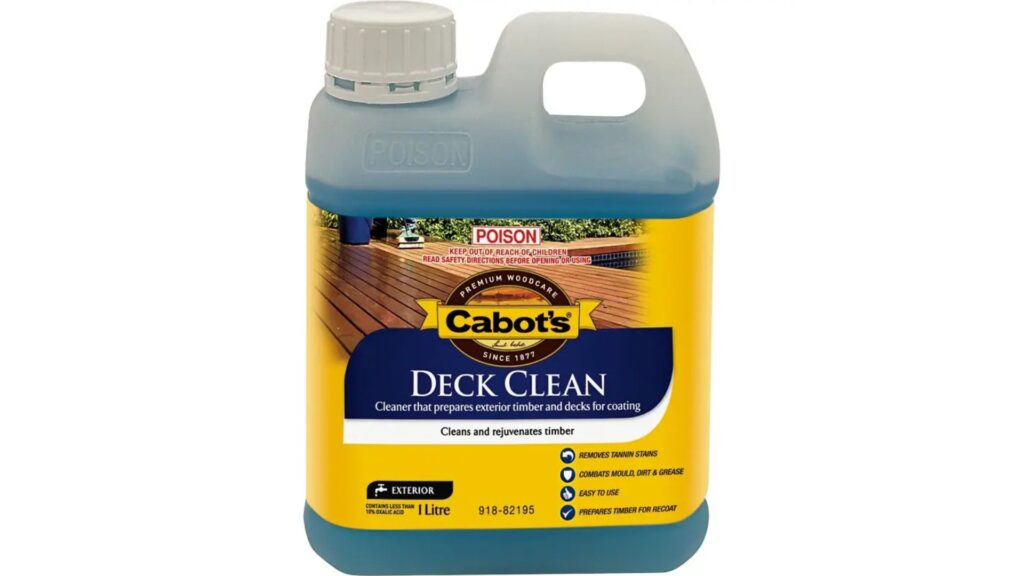
How To Choose The Right Deck Cleaner
Choosing the right deck cleaner is essential for maintaining the longevity and appearance of your outdoor space. Not only does the right cleaner keep your deck looking pristine, but it also preserves the material from long-term damage caused by dirt, mold, and algae. This guide will help you navigate through the various factors you should consider when selecting a deck cleaner that best fits your needs.
Considerations Based on Deck Material
The first and foremost factor to consider is the material of your deck. Different materials require different care regimens and cleaning solutions to prevent damage while effectively cleaning the surface. Here’s a breakdown of common deck materials and the types of cleaners suitable for each:
- Wood: Natural wood decks, such as cedar, pine, or mahogany, benefit from cleaners that are specifically designed to tackle mold and mildew without stripping away natural oils. Look for a cleaner that states it’s suitable for use on wood and check if it needs to be diluted to prevent damage to the wood fibers.
- Composite: Composite decks are made from a blend of wood fibers and plastics, so require a cleaner that can handle both materials without causing discoloration or deterioration. Opt for cleaners labeled as suitable for composite materials.
- Vinyl: For vinyl (PVC) decks, you’ll need a cleaner that can remove grime and stains without leaving streaks or residue. Cleaners designed for synthetic materials are typically a safe bet.
Choosing the correct cleaner according to your deck’s material ensures effective cleaning and maintains the integrity of the deck surface.
Environmental Impact
Today, more homeowners are considering the environmental impact of their cleaning products. Eco-friendly deck cleaners are formulated to be safe for the environment, including the plants and animals around your home. These cleaners avoid harsh chemicals like chlorine bleach and instead use biodegradable and phosphate-free ingredients. When shopping for an eco-friendly deck cleaner, look for labels such as “biodegradable,” “eco-friendly,” or “non-toxic.” Not only will these products help in keeping your outdoor space clean, but they also contribute to the sustainability of the environment.
Budget Considerations
When selecting a deck cleaner, it’s crucial to balance cost with quality. While it may be tempting to opt for the cheapest option, cheaper cleaners can sometimes be harsher or less effective, requiring more product or more frequent cleaning, which could increase overall costs in the long run. Consider the following when budgeting for your deck cleaner:
- Concentration vs. Ready-to-Use: Concentrated cleaners often offer more bang for your buck as they need to be diluted and can cover a larger area. However, ready-to-use solutions offer convenience.
- Size and Coverage: Check the estimated coverage on the cleaner’s packaging to ensure you’re buying enough to cover your deck. This helps in avoiding the frustration of running out of cleaner before the job is done.
- Long-Term Deck Health: Investing in a slightly more expensive but highly effective cleaner could save you money on future deck repairs and maintenance.
By taking into account the deck material, environmental impact, and your budget, you can choose a deck cleaner that will effectively maintain your deck’s beauty and longevity without compromising your values or wallet. Opting for the right product according to these guidelines ensures that you are making a well-informed and sustainable choice for your home.
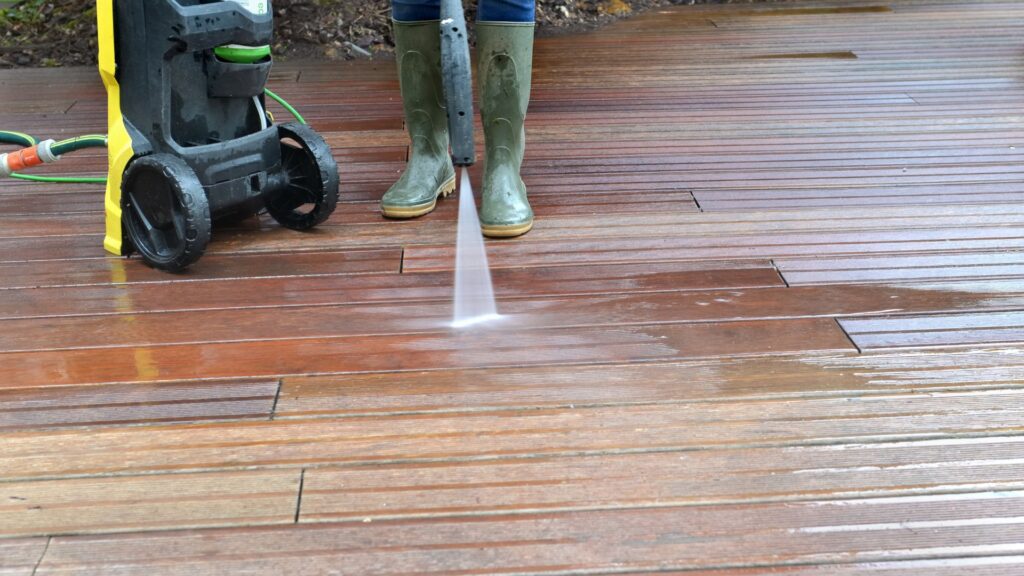
How To Use Deck Cleaners Effectively
A well-maintained deck not only extends the life of your investment but also enhances the aesthetic appeal of your outdoor space. Using deck cleaners effectively can help protect and restore the wood, ensuring it looks its best and stands up to the elements for years to come. Here’s a detailed guide on how to use deck cleaners effectively, including a step-by-step process, common mistakes to avoid, and tips for achieving the best results.
Step-by-Step Guide to Using Deck Cleaners
1. Pre-cleaning Preparations
- Clear the Deck: Start by removing all furniture, grills, and planters from the deck area. This provides you with unobstructed access to the entire surface and prevents any cleaning solution from damaging your outdoor items.
- Sweep Thoroughly: Use a broom to sweep off all loose dirt, leaves, and debris. Pay special attention to the gaps between the boards where dirt tends to accumulate.
- Check for Repairs: Inspect the deck for any loose boards, nails, or screws. Make necessary repairs to ensure the surface is safe and even for cleaning.
2. Application Tips
- Select the Right Cleaner: Choose a cleaner suitable for your deck material—whether it’s wood, composite, or another type. Products like Mitre 10 deck cleaners offer a range of options tailored to different materials.
- Apply Evenly: Using a garden sprayer, roller, or stiff brush, apply the cleaner evenly across the deck. Avoid pooling the solution in any area to ensure consistent results.
- Let It Sit: Allow the cleaner to sit on the deck surface for the time specified on the product label. This dwell time is crucial for the cleaner to break down dirt and stains.
3. Safety Measures
- Wear Protective Gear: Always wear gloves and protective eyewear when handling chemical cleaners to protect your skin and eyes.
- Ventilate the Area: If you are using a particularly strong cleaner, ensure the area is well-ventilated. Outdoor areas typically provide sufficient ventilation, but it’s still important to be cautious.
Common Mistakes to Avoid
1. Over-application of Cleaner
- Applying too much cleaner can lead to unnecessary waste and can potentially damage the wood. Follow the manufacturer’s recommendations for application rates.
2. Ignoring Weather Conditions
- Avoid cleaning on extremely hot days or during direct sunlight, which can cause the cleaner to evaporate too quickly and reduce its effectiveness. Also, check the weather forecast to ensure no rain is expected within 24 hours after cleaning.
3. Improper Rinsing
- Thoroughly rinse the deck with clean water to remove all traces of cleaner. Residue from the cleaning solution can attract dirt and may lead to surface damage over time.
Tips for Best Results
1. Time of Day to Clean
- Opt for a cool, cloudy day to clean your deck. This helps in slowing the evaporation rate of the cleaner and allows it to work more effectively on stains and dirt.
2. Weather Considerations
- Ensure that the deck is completely dry before applying any sealer or stain post-cleaning. This can typically require a drying period of 24 to 48 hours depending on weather conditions.
3. Post-Cleaning Care
- Once the deck is dry, apply a high-quality sealer or stain to protect the wood from moisture and UV damage. This step not only prolongs the life of your deck but also enhances its color and grain.
By following these detailed steps, avoiding common pitfalls, and applying additional care tips, you can effectively clean and maintain your deck, ensuring it remains a beautiful and durable part of your outdoor living space for years to come.
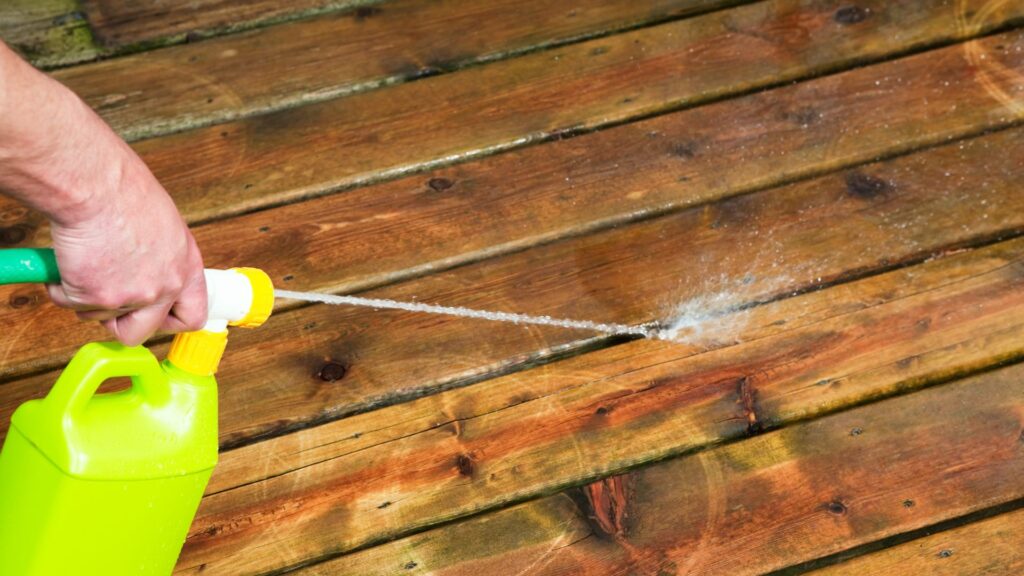
DIY Deck Cleaning Solutions
Maintaining a clean and attractive deck doesn’t always require professional products; sometimes, simple household items can do the trick. In this section, we’ll explore the ins and outs of DIY deck cleaning solutions, comparing their effectiveness to commercial products and weighing their pros and cons.
Recipes for Homemade Deck Cleaners
- Vinegar-Based Cleaners: One of the most popular natural cleaning solutions for decks is vinegar. Its acidic nature makes it effective at killing mold, bacteria, and weeds, and removing stubborn stains. To create a vinegar-based deck cleaner, mix one part white vinegar with one part water. You can apply this solution directly to your deck with a spray bottle or a mop. For tougher stains, the vinegar can be used undiluted.
- Baking Soda Solutions: Baking soda is another excellent eco-friendly cleaning option. It’s great for removing dirt and grime without damaging the deck’s surface. To make a baking soda cleaning solution, mix one cup of baking soda with two gallons of warm water. After applying the mixture to the deck, scrub with a brush to remove dirt effectively. Baking soda can also neutralize odors, making it a dual-purpose cleaner.
Effectiveness vs. Commercial Products
While DIY solutions are ideal for regular maintenance and mild stains, commercial deck cleaners are specifically formulated to tackle tougher jobs and deeper stains more effectively. Homemade cleaners are best suited for:
- Light Cleaning: Perfect for removing dust, dirt, and minor stains.
- Regular Maintenance: Helps maintain the deck’s appearance without harsh chemicals.
Commercial products, on the other hand, are more suitable for:
- Deep Cleaning: They contain stronger ingredients that can penetrate and remove embedded grime and mold.
- Restoring Wood: Some products are designed to not only clean but also to restore the wood’s natural appearance and protect it against future damage.
Pros and Cons of DIY Deck Cleaning
Pros:
- Cost-Effective: Homemade cleaners are much cheaper than commercial products, using ingredients that are likely already in your pantry.
- Eco-Friendly: They typically have a lower environmental impact, as they lack harsh chemicals.
- Health and Safety: Less toxic, which is safer for families and pets.
Cons:
- Effort: May require more elbow grease or frequent applications to achieve the same level of cleanliness as commercial products.
- Limited Effectiveness: Might not be as effective on longstanding or very tough stains.
- Consistency: Results can vary depending on the mixture and application method.
By considering the type of cleaning your deck needs, you can choose between a homemade or a commercial cleaner effectively. While DIY solutions offer natural and inexpensive ways to keep your deck looking fresh, they might require more effort and frequent use. For more challenging cleaning tasks, commercial cleaners can provide a deeper clean and additional wood care benefits. Remember, the key to any deck maintenance is regular care and prompt stain removal, regardless of the cleaning solution you choose.
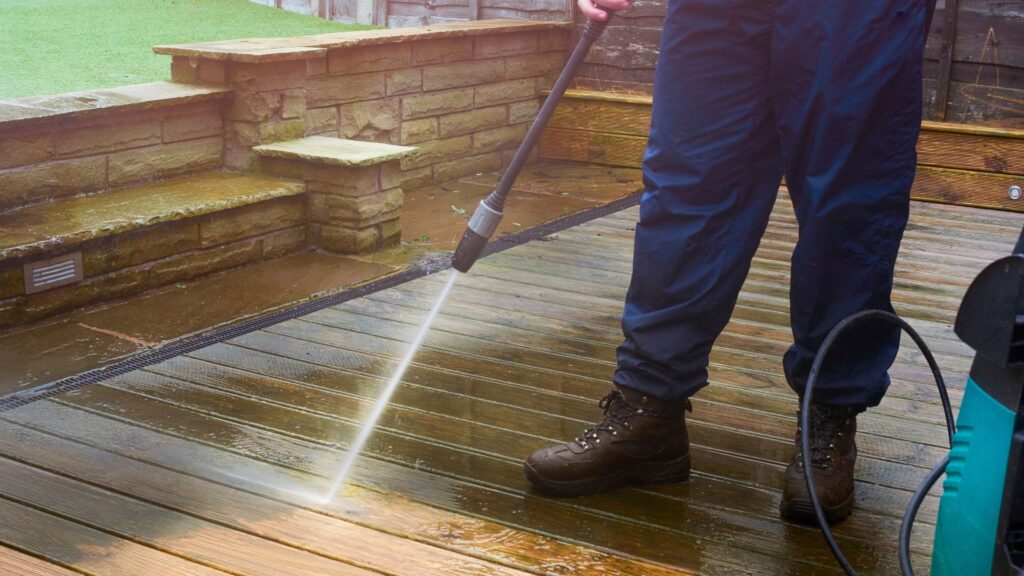
Maintaining Your Deck After Cleaning
After revitalizing your deck with a thorough clean, proper maintenance is crucial to extend its lifespan and keep it looking its best. This guide will delve into routine maintenance tips, signals that it’s time to call in a professional, and long-term care strategies to ensure your deck remains a beautiful and safe space for relaxation and entertainment.
Routine Maintenance Tips
Regular upkeep is the key to preventing major repairs down the line, and it can be straightforward and cost-effective. Here are essential steps to incorporate into your deck maintenance routine:
1. Sweeping: Regularly remove leaves, dirt, and debris with a soft broom. This prevents buildup that can trap moisture against the wood, leading to rot or mildew.
2. Immediate Stain Treatment: Act swiftly on spills to prevent staining. Using appropriate cleaners for your deck material will help avoid damage from harsh chemicals.
3. Periodic Deep Cleaning: Depending on your local climate and the usage of your deck, a deep clean every 6 to 12 months can help maintain its appearance and integrity. Use a cleaner suitable for your deck type—wood, composite, or other material.
Incorporating these simple practices can keep your deck in pristine condition and ready for impromptu gatherings or a quiet evening outdoors.
When to Seek Professional Help
While DIY maintenance can handle most of your deck’s needs, there are times when professional assistance is necessary:
- Structural Issues: If you notice loose boards, shaky railings, or any signs of structural damage, it’s time to call a professional. These issues can pose safety risks and require precise repairs.
- Persistent Stains or Damage: Some problems, like deep stains or wood rot, need professional-grade tools and expertise for effective remediation.
- Refinishing Tasks: Professionals can ensure that tasks like sanding, sealing, or staining are done correctly, which can be critical for maintaining the aesthetic and longevity of your deck.
Recognizing when to call in a professional can save you time and money in the long run by preventing small issues from becoming major problems.
Long-Term Deck Care Strategies
To maximize the life of your deck, consider these long-term strategies:
- Sealing: Apply a high-quality sealer every 2-3 years to protect the wood from moisture and UV damage. This can drastically reduce weathering and the risk of rot.
- Staining: Beyond aesthetic appeal, staining can provide an extra layer of protection to your deck. Choose a stain that complements your home and fits the deck’s exposure conditions.
- Regular Inspections: Annually inspect your deck for signs of wear and tear. Look for cracks, rot, rust on hardware, and other potential issues. Early detection leads to simpler, cheaper solutions.
By adopting these strategies, you can ensure that your deck remains a durable, welcoming space for years to come. Whether you’re hosting a summer barbecue or enjoying a quiet morning coffee, a well-maintained deck enhances every moment.
In conclusion, maintaining your deck is a critical aspect of homeownership that extends its usability and beauty. By following these straightforward maintenance tips, seeking professional help when necessary, and implementing long-term care strategies, you can enjoy a functional and inviting deck throughout the year..
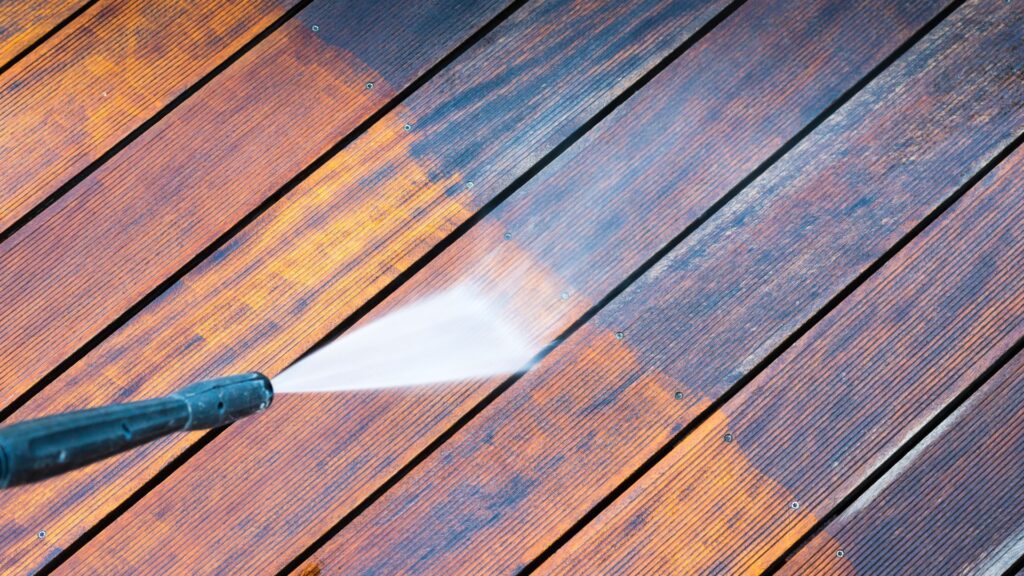
FAQs: About Best Deck Cleaner NZ
What are the best types of deck cleaners available in NZ?
There are three main types of deck cleaners available: chemical cleaners, eco-friendly cleaners, and homemade solutions. Each type offers different benefits and is suitable for various materials and environmental considerations.
How often should I clean my deck in New Zealand?
It’s recommended to clean your deck at least once a year to maintain its appearance and longevity. However, decks exposed to harsher weather conditions or high foot traffic may require more frequent cleaning.
Can I use the same deck cleaner for different materials?
While some deck cleaners are versatile, it’s important to choose a cleaner appropriate for the material of your deck, such as specific formulas designed for wood, composite, or other materials to avoid damage.
Are eco-friendly deck cleaners as effective as chemical cleaners?
Eco-friendly deck cleaners can be just as effective as chemical cleaners, especially for regular maintenance. They are better for the environment and safer for families and pets.
What should I look for in a deck cleaner?
When selecting a deck cleaner, consider its suitability for your deck’s material, its environmental impact, ease of use, effectiveness against common issues like mold and algae, and overall cost.
Can I make my own deck cleaner?
Yes, you can make your own deck cleaner using common household ingredients like vinegar or baking soda. These DIY solutions can be effective for light cleaning and are often more environmentally friendly.
What are the risks of using a chemical deck cleaner?
Chemical deck cleaners can be very effective but may pose risks if not used correctly, such as damaging the deck material or harming surrounding plant life. Always follow the manufacturer’s instructions carefully.
How do I apply deck cleaner properly?
Apply deck cleaner using a brush or sprayer, following the product’s directions. Ensure even coverage and let the cleaner sit for the specified time before rinsing thoroughly with water.
What are the common mistakes to avoid when cleaning a deck?
Common mistakes include over-applying cleaner, ignoring manufacturer’s instructions, cleaning during inappropriate weather conditions, and failing to rinse the deck thoroughly, which can leave residues that attract more dirt.
Where can I buy the best deck cleaners in NZ?
Deck cleaners can be purchased at local home improvement stores, such as Mitre 10, or ordered online. Ensure to review product descriptions and user reviews to choose a cleaner that best suits your deck’s specific needs.
Conclusion
When selecting the ideal deck cleaner, it’s crucial to remember that the longevity and aesthetic appeal of your deck largely depend on this choice. Every deck is unique, and finding a cleaner that suits your specific needs and preferences can significantly enhance your deck’s condition. Whether you’re considering one of the top-rated products we’ve reviewed or leaning towards a DIY solution, taking the time to assess your options can lead to more satisfying and effective maintenance. We invite you to revisit our comprehensive reviews and guides to find the perfect fit for your deck, ensuring it remains a pristine and enjoyable part of your home for years to come.
About the Author:
Mike Veail is a recognized digital marketing expert with over 6 years of experience in helping tradespeople and small businesses thrive online. A former quantity surveyor, Mike combines deep industry knowledge with hands-on expertise in SEO and Google Ads. His marketing strategies are tailored to the specific needs of the trades sector, helping businesses increase visibility and generate more leads through proven, ethical methods.
Mike has successfully partnered with numerous companies, establishing a track record of delivering measurable results. His work has been featured across various platforms that showcase his expertise in lead generation and online marketing for the trades sector.
Learn more about Mike's experience and services at https://theleadguy.online or follow him on social media:

